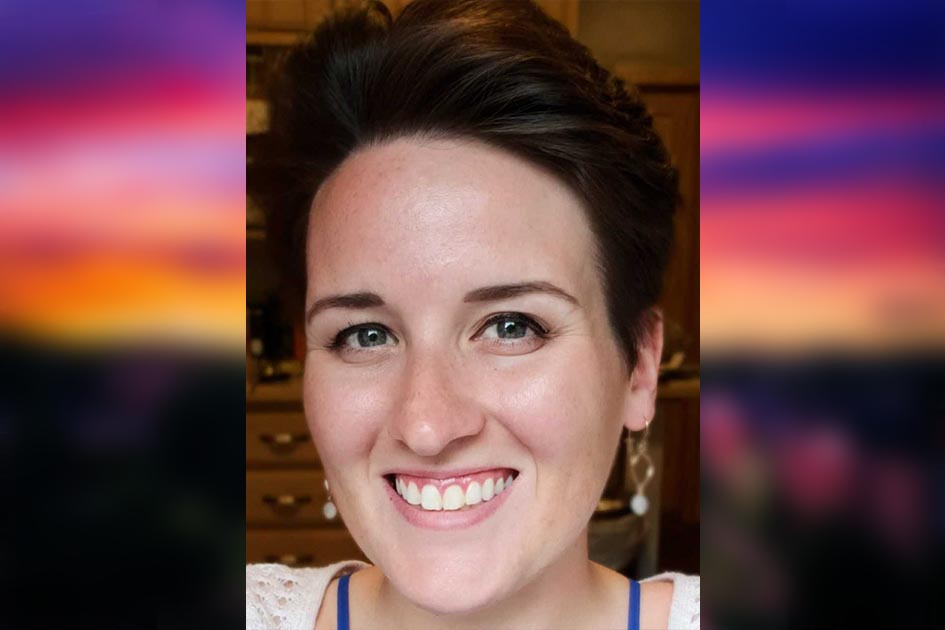BUCKHANNON – The outcome of the controversial omnibus education bills has led a local high school teacher to toss her name into the 2020 House of Delegates race.
“Senate Bill 451 and House Bill 206 were truly a catalyst for this decision. Not necessarily the bills themselves, but the attitude and behavior of the legislative bodies towards public education,” said Brittney Barlett, who will run for office as a Democrat in the 46th District, which covers mostly Lewis County but also a small part of Upshur.
“When legislation is bad, it fails,” Barlett added. “But when … rules are suspended in order to push an agenda that would fail if taken up fairly, you know those you trust to protect you are actually the ones fighting against you.”
The 28-year-old English teacher at Buckhannon-Upshur High School and president of the local American Federal of Teachers union chapter said she wasn’t particularly interested in politics until she moved to the Mountain State five years ago. But here, she witnessed the impact of community service, the surge of volunteerism and how a teachers’ strike could rock the nation.
“When the teacher strike happened last year, I saw how our movement sparked a fire across the world. Working people began standing up to their elected officials and demanding living wages, safer environments and quality education for students,” she said. “When I saw how our current delegate in the 46th voted and heard his opinions on public education firsthand, I knew someone needed to take that seat in the House and fight for our students.
“After learning so much about the legislative process over the past two years and knowing I have the knowledge of all of the brilliant minds in the 46th to guide me, I decided to step up.”
Del. Patrick Martin (R-Lewis) is currently serving his second term in office in the 46th District.
Since last year’s strike, the weight of SB 451 and HB 206 laid heavy on the minds of teachers and school service personnel. At the end of June, the roughly 150-page HB 206 passed, and it included a 5 percent raise for educators and service personnel. The bill will also allow for three publicly funded charter schools to be established by July 1, 2023; another three by 2026; and so on.
But Barlett doesn’t see the passing of HB 206 as a time to celebrate, but rather feels it is “entirely unconstitutional.”
“In fact, WVEA (West Virginia Education Association) filed a letter of intent to sue with Attorney General Morrisey over a violation of the single-item clause in the West Virginia State Constitution,” Barlett said. “Essentially, it requires each portion of the bill to be voted on individually. I can be on board with a lot of the bill. We are losing teachers to neighboring states with much higher pay, leaving us with an estimate 1,000 vacancies at the start of this year, so educators and service personnel need a raise.”
“We desperately need wrap-around services, which includes increased mental health support, but this bill didn’t even come close to the level of change we need in our schools,” she continued. “The bill didn’t even address over-crowded class sizes, and locality pay will cause a migration of teachers to border counties. The RIF (Reduction in Force)/hire policy needs work, and charters, while not inherently bad, are absolutely not right for West Virginia.”
Overall, Barlett finds that educators have been “dismissed, disrespected and displaced” because of the actions from state legislators.
“They didn’t invite a single West Virginia educator, service person or superintendent to help draft their legislation,” she said. “They promised us a fix to PEIA (Public Employees Insurance Agency), which one-ninth of the state relies on, and have done nothing to address this enormous issue. They bought political strategists and message coaches at great expense to try to turn the public to their side – which ultimately failed, because we know beyond a shadow of a doubt that we are fighting for students, while they are fighting to represent corporate interest groups and out-of-state lobbyists intent on de-funding public education.”
Since talk of reforming the education bills began last year, Barlett has done anything but idly sit by, she said.
Before, during and between the strikes, she went to PEIA public hearings, legislative public hearings, picketed, wrote letters, made phone calls and organized union members. She held votes and informational meetings, protested at the Capitol, listened to hours of live feeds from the House and Senate, sat in the galleries, waited outside the offices of legislators and read bills while sitting in the hallways outside education committee hearings.
“I did everything possible to prevent these bills from being signed into law,” she said.
“There are photos of me in the media from the first day at the Capitol to the public signing of the PEIA promise by Governor Justice at the end of the strike last year. I even had to take off my summer job teaching at Upward Bound to make the committee meeting this year.
“Exercising our civil rights is an important duty when the government is not listening to its people, and it is very apparent that our current government has been listening to cash, not constituents.”
At the end of this school year, the faculty senate president presented Barlett with the “Most Likely to Run for Public Office” certificate, one of the many humorous awards that are given out.
“Which was ironic considering I announced my candidacy after hopping in my car and heading down to Charleston to speak at the public hearing at the Capitol during the special session a few weeks later,” she said.
As one can tell, education is a focal point for Barlett as she campaigns for the upcoming race. But she knows the state has other heartaches and challenges to tackle as well.
“For instance, we need desperate overhaul in our attempts to address the addiction crisis in our state,” she said. “This includes listening to those doing the work in the recovery community and doing what research shows us works best. Upshur County is beyond lucky to have Matt Kerner and the Opportunity House, but other counties, like Lewis, aren’t so lucky. We need to tackle our serious climate change issues, which includes finding ways to incorporate more green energy in the state and find recycling processes that work.
“While this sounds great to environmentalists and terrible to those who have served in the coal industry for decades, there is a way to put those currently in the energy industry in a position to benefit as well. This includes job training programs, a reasonable transition period and a cooperation with scientists to find out how to reverse the disastrous effects of climate change we are currently experiencing. We cannot live a life knowing it isn’t a matter of if – but when – the next flood will destroy another community. And to support all of these ideas and more, we need to increase tax revenue, but not on the backs of working people.”
How would Barlett do that?
“We need to create a sensible severance tax on natural gas, ensure our wealthiest state inhabitants are paying their fair share, and we need to legalize marijuana,” she said. “While legalization is controversial, I feel passionately about the medical benefits proven through countless studies … as well as the reports of increased wealth from tourism and tax revenue in states that have already made this move.”













